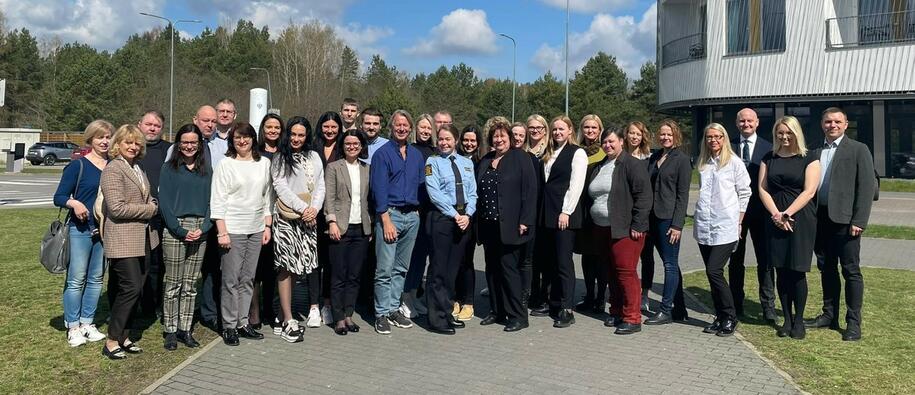Key facts
Articles
Currently available funding
More information
Programme Summary
Objective
Strengthened rule of law
Programme summary
Programme Concerns
Approximately 13% of the total eligible expenditure of the programme, excluding management costs, shall be allocated to programme area ‘Domestic and Gender-based Violence’. The possibility of predefining projects focusing on the objectives and values behind the Istanbul convention, policy improvements, police investigations, court proceedings and best practice developments, shall be explored when developing the concept note.
Approximately 16 % of the total eligible expenditure of the programme, excluding management costs, shall be allocated to programme area ‘International Police Cooperation and Combating Crime’. The possibility of predefining projects focusing on bilateral cooperation with the Norwegian Police Service to combat cross-border and organised crime, in order to facilitate operative cooperation based on current trends and criminal cases i.e. concerning trafficking in human beings and other profit motivated crime, shall be explored when developing the concept note.
Approximately 71% of the total eligible expenditure of the programme, excluding management costs, shall be allocated to programme area ‘Correctional Services and Pre-trial Detention’ in order to improve the Lithuanian correctional system. The possibility of pre-defining projects, including the establishment of a training centre and up to two pilot correctional centres, shall be explored when developing the concept note.
No more than 50% of the total eligible expenditure of the programme area ‘Domestic and Gender-based Violence’ shall be available for infrastructure (hard measures).
Synergies between the programme area within this programme and the programme areas within the programme “Justice and Home Affairs“ implemented under the Norwegian Financial Mechanism 2014-2021 shall be ensured to strengthen the justice chain, inter alia by strengthening access to justice, the use of alternative sanctions to imprisonment and fight against gender-based violence. Interaction and cooperation with relevant civil society organisations shall be encouraged.
Synergies between the programme areas within this programme and between these and the programme area within the programme “Justice and Home affairs” implemented under the EEA Financial Mechanism 2014-2021 shall be ensured to strengthen the justice chain, inter alia by strengthening access to justice, the use of alternative sanctions to imprisonment and fight against gender-based violence. Interaction and cooperation with relevant civil society organisations shall be encouraged.
The exact budget allocation among programme areas shall be specified in the programme agreement.
The Ministry of Justice of Lithuania, the Ministry of Interior of Lithuania, the National Courts Administration of Lithuania and the Prosecution General’s Office of Lithuania shall be Programme Partners and shall be actively involved and effectively contribute to the development and implementation of the programme. They shall, inter alia, be actively involved in policy issues and in facilitating bilateral cooperation.
The Ministry of Justice of Lithuania, the Ministry of Interior of Lithuania, the National Courts Administration of Lithuania and the Prosecution General’s Office of Lithuania shall be Programme Partners and shall be actively involved in and effectively contribute to the development and implementation of the programme. They shall, inter alia, be actively involved in policy issues and in facilitating bilateral cooperation.
The programme shall include measures to increase the use of alternative sanctions to imprisonment.
The total eligible expenditure of the programme, excluding management costs, shall be allocated to programme area ‘Effectiveness and Efficiency of the Judicial System, Strengthening Rule of Law’, including a possible prosecution component. The possibility of predefining projects focusing on addressing the concept of European judicial culture and the European Convention on Human Rights, shall be explored when developing the concept note.
There is an ambition that no more than 60% of the total eligible expenditure of the programme shall be available for infrastructure (hard measures).
There should be special focus on transition from prison to probation through means of halfway house and electronic monitoring.
Bilateral Ambitions
shall be allocated to the programme from the fund for bilateral relations. This does not prevent the Joint Committee for Bilateral Funds from allocating additional funds to the programme.
Information on the projects funded by the EEA and Norway Grants is provided by the Programme and Fund Operators in the Beneficiary States, who are responsible for the completeness and accuracy of this information.

